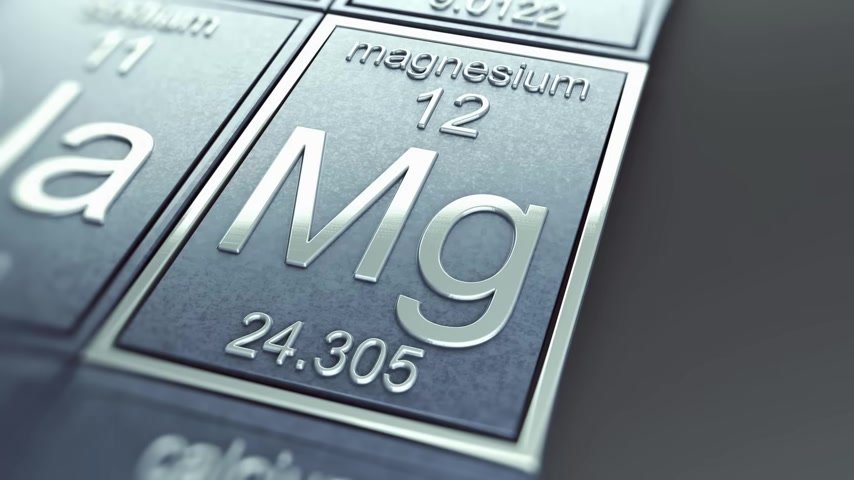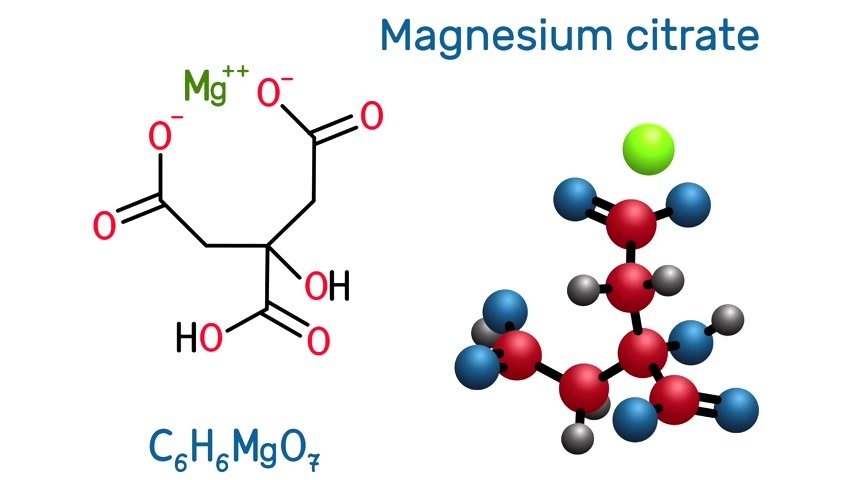Table of Contents
Discover the unique benefits of Magnesium Glycinate, including improved absorption, muscle relaxation, better sleep, and more. Learn why it’s gentler on the stomach and how it supports overall health
Magnesium explained
Today , let’s talk about the unique benefits of magnesium glycinate .
Now as you may know already , magnesium is involved in over 300 different enzymes , including making , energy as ATP , including , all sorts of things with your muscles and the nervous system , as well as your DNA .
What is magnesium glycinate?

But it’s important to understand that magnesium comes in a lot of different forms .
So if we look at what magnesium glycinate really is , it’s really a combination of magnesium and the amino acid glycine together combined .
The best form of magnesium
And when you combine those , you get a much better absorption in the intestine versus using a type of magnesium that’s not well absorbed like magnesium oxide or sulfate or carbonate or even magnesium hydroxide , those are all poorly absorbed .
Magnesium glycinate benefits
But other forms like magnesium glycinate are very easily absorbed , and magnesium glycinate is very gentle on your stomach .
It won’t cause the diarrhea that some other forms can create like magnesium citrate .

So it has a much lesser laxative effect .
It’s good for overall relaxation , muscle relaxation , especially at night preventing cramps .
So it’s really good for sleep , improving insomnia , and it also is good for improving energy .
Now it’s not gonna keep you up at night , but it’s gonna allow you to get into a much deeper sleep to have energy during the day .
Magnesium glycinate also has an effect as a vasodilator .
So it’s really good for blood pressure .
It’s also good to help , regulate calcium and prevent calcium from accumulating because magnesium and calcium work together .

And since it’s involved with calcium , it can also reduce the risk of kidney stones .
And it’s also been known to help increase insulin sensitivity to help blood sugars and people that have problems with insulin resistance , which could even be a prediabetic or even a diabetic .
Magnesium glycinate also has been known to help people with migraine headaches and states of lower mood like depression and anxiety .
So it’s a really good form of magnesium that overall helps reduce stress .
Magnesium glycinate supplements
Now if you get this as a supplement , I would try to , get one that also has a vitamin d 3 and b 6 because both of those nutrients will help the absorption even more .
Magnesium glycinate vs. magnesium bisglycinate
And sometimes people have a question of what’s the difference between this magnesium glycinate versus magnesium bisglycinate , well , there is no difference .
They’re the exact same supplement .
So by adding that little bisque behind the name does not change the chemistry at all .
Magnesium citrate
Now since we mentioned magnesium citrate , I will say that’s a really good one for leg cramps at night .
It’s a good one for stress .
It’s a good one for blood pressure .
But magnesium citrate can create a laxative effect .
So it might be better for people that have a tendency to be more constipated .
But if you compare the 2 , magnesium glycinate is just a little bit better for various reasons .
It won’t create a laxative effect .
How to take magnesium glycinate
And , magnesium glycinate is not dependent on the pH .
In other words , you can take it on an empty stomach or with food .
You don’t even need a strong stomach acid to absorb it , which is unique because most minerals need that strong stomach acid .
So as people get older and they lose their stomach acid , they’re not gonna absorb minerals .
But if you take magnesium in the glycinate form , it will be absorbed regardless of the pH of your stomach .
Now the best time to take this form of magnesium would be right before bed because it’s gonna help you sleep .
It’s gonna relax you .
It’s gonna prevent those leg cramps .
However , if you take it to other parts of the day , it’s not gonna necessarily make you tired .
It’s going to just make you feel more relaxed .

Should you take in an empty stomach ?
It doesn’t really matter .
You can take it with meals or without .
Now the normal dose I would recommend would be anywhere between a 100 milligrams to 400 milligrams per day .
And that would depend on what kind of problems are you trying to solve .
Do you have severe muscle cramps ?
Let’s say you have severe high blood pressure or you have sleeping problems .
Well , just take a little bit more .
But if you don’t , take a little bit less .
Glycine benefits
Like I said before , magnesium glycinate is a combination of magnesium and glycine .
So now let’s talk about the benefits of glycine .
It creates a calming effect .
It will help you sleep .
It helps the neurotransmitters in your brain , thereby increasing cognitive function .
It’s even good for collagen support and blood sugar control .

And sometimes it’s used as an anti inflammatory because it can help get rid of inflammation .
It can even help improve bile production , okay , which can help your absorption , especially of fats .
It’s also related to increasing energy just like magnesium .
So you just might find that your energy starts to increase over a period of time .
And lastly , it’s a precursor for something called glutathione to help you detoxify .
Magnesium l-threonate
Now another form of magnesium that a lot of people are taking is called magnesium L threonate .
That specific type of magnesium is a bit more expensive , but it’s a little bit better for your brain .
So if you’re trying to take magnesium for more cognitive improvements , then that would be the form that I would recommend .
Magnesium glycinate side effects
Are there any side effects for magnesium glycinate ?
And there’s really only 2 that I found .
And one would be low blood pressure , but you’d have to take a lot of it over a period of time and you might end up with a lower amount of blood pressure .
So this might be good for someone with high blood pressure , but it’s not gonna be significant .

It just might be a little bit lower than it should , which might be a good thing because it causes this vasodilation effect , which actually will increase circulation .
The other thing about magnesium glycinate is it does tend to interfere with certain medications .
So you wanna check with your doctor .
It can inhibit the function or the effectiveness of certain medications .
But as far as the laxative effect , it’s not going to create much of a laxative effect as other types of magnesium , but that also depends on your dosage .
If you’re taking a lot of it with all this magnesium from the food , and maybe in other supplements , it could contribute to more of a diarrhea situation .
In which case , you’re gonna have to kind of reduce the dosage from one of your supplements or this one specifically .
The best sources of magnesium
Now where do we get magnesium from the diet ?
Primarily , it is involved in chlorophyll .
It’s at the heart of the chlorophyll molecule .

That’s that green stuff in plants , as in leafy green vegetables .
The chemistry of this green chlorophyll is very similar to the chemistry of our own blood , but with some very unique differences .
So with chlorophyll , we have this magnesium that tends to be on the green side .
And then with blood , we have iron , which is on the red side .
But one of the best sources of magnesium is just by consuming enough leafy greens , as in salads and other leafy greens .

So even if you took 3 cups of dark leafy green vegetables every single day , you would probably get the amounts of magnesium you would need , as the recommended amounts .
But , of course , you have to realize that , you’re not gonna absorb a 100% of that .
It’s gonna be a portion of that .
So you might need to have more .
Magnesium RDAs
But my point is that the RDAs , for magnesium for men is roughly about 420 , and for women is about 320
That’s just the , amount of magnesium that you need to prevent a deficiency , but not necessarily , the therapeutic dosage that you might need if you have a severe imbalance .
And one of the problems with magnesium as far as testing it in the blood goes is you’re not gonna be able to really detect a magnesium deficiency because the majority , I’m talking about 99% of all the magnesium , is inside the cell , not outside the cell in the blood .
So a blood test is not gonna give you a lot of information .

You’d wanna do what’s called an intracellular magnesium test , and I will put a link down below for that information .
Magnesium is also in other foods as well .
It’s in fish .
It’s in nuts like cashews .
So I hope you now know more about this magnesium glycinate .
It’s a fascinating supplement that has huge benefits .
And there’s a lot more to know about magnesium .
key Points:
- Magnesium glycinate is a combination of magnesium and the amino acid glycine. This combination increases absorption in the intestine. Magnesium oxide, sulfate, carbonate, and hydroxide are all poorly absorbed.
- Magnesium glycinate is also very gentle on your stomach and is less likely to cause diarrhea, like other forms of magnesium can.
Top benefits of magnesium glycinate:
• It promotes overall relaxation and muscle relaxation
• It supports sleep and may help with insomnia
• It improves energy during the day
• It supports healthy blood pressure
• It regulates calcium
• It reduces the risk of kidney stones
• It increases insulin sensitivity and promotes healthy blood sugar
• It may help with migraines
• It may help with depression and anxiety
• It may help reduce stress
- To increase the absorption even more, find a magnesium glycinate supplement that also contains vitamin D3 and vitamin B6.
- You can take magnesium glycinate with or without food. The best time to take this form of magnesium is right before bed. However, taking it at other times of the day won’t make you feel tired, just relaxed. Consider taking between 100 mg to 400 mg daily, depending on the severity of the issue.
- Taking high amounts of magnesium glycinate over time may lead to slightly lower blood pressure or contribute to diarrhea. Also, keep in mind that magnesium glycinate may interfere with certain medications.
- To get more magnesium in your diet, start consuming more leafy green vegetables.
DATA:
Intracellular magnesium test: https://www.exatest.com/
FAQ:
1. What makes magnesium glycinate different?
Magnesium glycinate is a form of magnesium that is bonded to glycine, an amino acid. This bonding makes magnesium glycinate highly absorbable and bioavailable, which means it’s more easily absorbed into your bloodstream compared to other forms of magnesium. It’s known for having a calming effect on the brain, thanks to the presence of glycine, and is less likely to cause gastrointestinal upset.
2. What are the proven benefits of magnesium glycinate?
The proven benefits of magnesium glycinate include:
- Enhanced Absorption: Being highly bioavailable, it’s efficiently absorbed by the body.
- Mental Calmness: The glycine component can have a calming effect on the brain, potentially aiding in the treatment of anxiety and improving sleep quality.
- Reduced Muscle Cramps: Magnesium plays a key role in muscle relaxation, which can help reduce muscle cramps and spasms.
- Bone Health: Magnesium is essential for bone formation and maintenance.
- Heart Health: It supports healthy heart rhythms and blood pressure levels.
3. What’s the difference between magnesium citrate and glycinate which is better?
The main difference lies in their absorption and what they’re best used for:
- Magnesium Citrate is magnesium combined with citric acid. This form is more commonly used for its laxative effect and to treat constipation.
- Magnesium Glycinate is magnesium bound to glycine, known for its calming properties and high bioavailability, making it less likely to cause digestive issues.
Which is better depends on your specific health needs. Magnesium glycinate is generally better for those looking to improve sleep or reduce muscle cramps without the laxative effect, while magnesium citrate is beneficial for those dealing with constipation.
4. Do different forms of magnesium have different effects?
Yes, different forms of magnesium can have different effects on the body, primarily due to how each form is absorbed and utilized. The type of molecule magnesium is bound to can influence its therapeutic effects. For example:
- Magnesium Citrate: Well-known for its laxative properties.
- Magnesium Glycinate: Recognized for its calming effects and high bioavailability.
- Magnesium Oxide: Commonly used to treat migraines and constipation but has lower bioavailability.
- Magnesium Chloride: Often used topically for muscle soreness and spasms.




